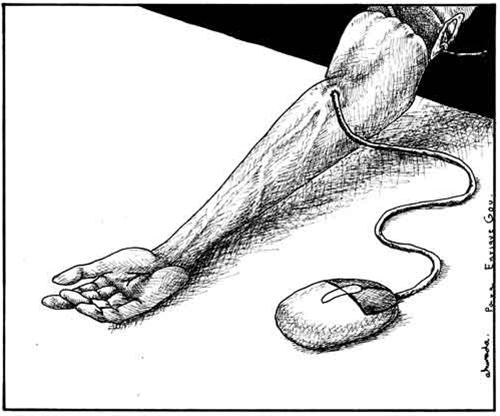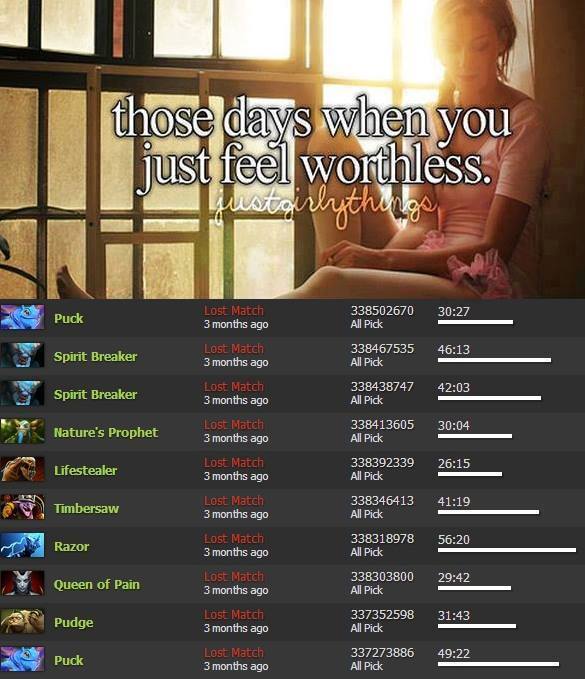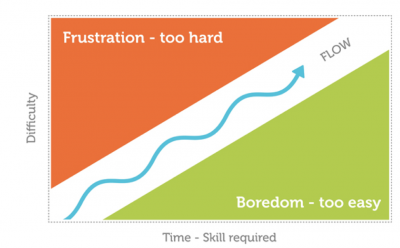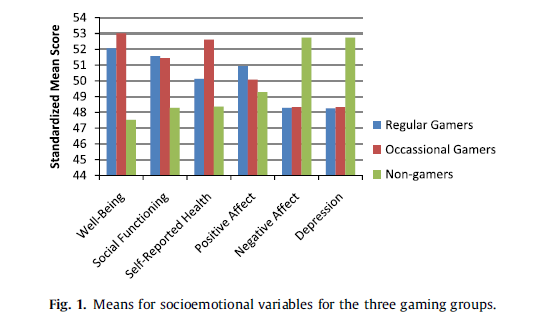
Due to the continuous technological advancements today, online games have become prevalent. Their popularity especially among the younger individuals, in turn, raises concerns from parents about their children's excessive playing. Online gaming addiction is one of the issues that seeks understanding. This article will attempt to shed some light regarding the matter and hopefully create a wider understanding about online gaming addiction.
First Argument: An online gaming addict is similar to a drug addict
According to the Diagnostic and Statistical Manual (DSM-5), a book published by the American Psychiatric Association (APA), Internet Gaming Disorder falls under the Substance-Related and Addictive Disorders. The brain responses of a gaming addict, the text reads, are triggered the same way as an addict under the influence of drugs.
Internet gaming disorder is a pattern of excessive and prolonged Internet gaming that results in a cluster of cognitive and behavioral symptoms, including progressive loss of control over gaming, tolerance, and withdrawal symptoms, analogous to the symptoms of substance use disorders.
The APA also explained that internet gaming activates reward systems similarly to using drugs. The euphoric feeling when you win a match, kill a boss or unlock an achievement is the same as getting high, as both activities trigger dopamine releases in the brain. When addicts get engrossed playing an online game, "certain pathways in their brains are triggered in the same direct and intense way that a drug addict’s brain is affected by a particular substance".
A person that suffers from internet gaming disorder tends to neglect his or her obligations towards school, work or family, a pattern also observed in drug addicts. Other symptoms include irritability and agitation once away from the game. With these factors in mind, the APA concluded that gaming addiction is one of the problems of society and needs clinical treatment.
To further reinforce this point, there are hospitals across America and Asian countries like China and Korea which work to rehabilitating people suffering from gaming addiction. Statistics speaks that 10% of all 30 million gamers in China are addicted to online gaming. For the US, data from the American Medical Association shows that 15% of all gamers - or approximately five million people - are addicted.
Counter-Argument: It's not the game, it's the player
Unlike drugs, the game itself does not necessarily trigger the players' addictive tendencies and there aren't sufficient studies to support this claim. While it is true that in-game accomplishments and rewards trigger dopamine release - a symptom observed in drug addicts - this is directly tied to player's personality. Not everyone who engages in gaming gets addicted. Drugs deliberately alter the brain pathways to achieve that level of drugged state unlike in gaming where there are certain psychological traits of the player that need to be taken into consideration.

One research explains the satisfaction-dissatisfaction needs of a player and how players susceptible to addiction are often driven by the latter.
In general, findings of [this] research indicate that addicts of online games tend to be affected by the sense of dissatisfaction, and this might be the reason they are compulsive users. In contrast, the non-addicts tend to seek enhancement of satisfaction and this might be the reason why they are capable of avoiding the obsession to online games. Chin-Sheng W., Wen-Bin C. (2006)
It's that 'just one more game' feeling that gamers experience when they keep on losing games. Once they've achieved their goal, they tend to stabilize. Regular drugs, however, work differently - they never allow the user to achieve the level of satisfaction which leads to the end of the consumption process and so drug addicts' personal tendencies play small or no role towards the addiction.
According to another research, gaming addiction is highly related with the personality trait of a player that. Eun Joo K. et al. (2008) conducted a study regarding this matter and they concluded that aggression and narcissistic personality traits are positively correlated while self-control is negatively correlated with gaming addiction.
Second Argument: Online gaming addicts want to escape reality
People who are addicted to games are usually too stressed in real life that they choose to play online games instead. Since online games have developed phenomenally over the years, gamers now have the power to change their names and identities through character customization. They can create a new 'self' by choosing hair styles, clothing or when choosing powerful heroes. It's that freedom to be what they want that hooks gamers into addiction.
Online games has become a "living, self-contained three-dimensional societies", according to Young K. (2009). Because of this, gamers who are addicted would prefer to stay online and play games rather than face the problems of the physical world.
Counter-Argument: Everyone wants to escape reality
Gamers who play to escape reality may contribute to online gaming addiction but there isn't sufficient evidence to support that Internet Gaming Addiction has to be a mental disorder. Escapism is not a typical behaviour for gaming addicts alone. It is innate for people to constantly look for an escape, whether it's from work or from a stressful day. Because of this, they engage in activities like watching films, reading books, etc. There aren't studies that look into escapism as a primary attribute to Internet Gaming Addiction and there aren't enough information about whether escapism is a cause or an effect of Internet Gaming Addiction.
Wanting to escape reality may not be the primary reason for gamers to play online games. One alternative reason is that online games are mind-stimulating activities through which players can analyze and improve their mental skills as most online games are strategic games where you have to outwit your opponent. Another reason is to experience enjoyment.
The experiences of the gamers while playing can be calculated through their flow state, a method and concept proposed by Mihály Csíkszentmihályi. It is used to analyze non-virtual gamers as well. Within this theory, flow is described as the pure immersion of a person in a certain activity. It is that state of equilibrium where the person is experiencing enjoyment and satisfaction.
[...] Skill and challenge are two crucial factors of flow theory. In order to enter the flow state; the users
must maintain the balance between these two factors. A proposed model indicated that when skill
overcomes the challenge, the users would become bored. On the other hand, when the users challenge is more powerful than their skill, they would feel anxious. Chin-Sheng W., Wen-Bin C. (2006)

A study conducted among Taiwanese college students regarding the relation of flow state in Internet Gaming Addiction showed that those who have Internet Gaming Addiction tendencies have a lower flow state compared to those who are not addicted. The former have a low flow state are either bored or frustrated with the game. As a result, they receive lesser or no satisfaction at all, which brings us back to the problems described in the first sub-section. The players with a lower flow state cannot fully connect into the flow and consequently their main goal, would be a relief from the dissatisfaction rather than achieving satisfaction itself.
Gamers choose their games by its level of difficulty and enjoyment. It's the challenge that usually hooks them in playing and the yearning for escape may just be a minor reason for some gamers.
Third Argument: Gamers will have difficulty succeeding in life
A common argument in society is that since gamers spend too much time in online games, they forget their responsibilities and their lives go downhill from there. Young (2004) stated that online gaming is an emotionally draining and time-consuming activity. To create more time playing, online gaming addicts further neglect sleep, diet, exercise, hobbies and socializing. Online gaming addicts will disconnect from their life to such an extent that some of them would lose their jobs and their relationships with other people. Young online gaming addicts would fail in their education and they would find it hard to find careers in the future.

There have been a number of stories through the years which tell about even more severe, even lethal ramifications of online gaming addiction, reinforcing the above argument and painting a grim picture of gaming in general. In 2007, Associated Press reported about a couple who were too distracted in online games, particularly the Dungeons & Dragons series, that they didn't take care of their children.
Said children ended up malnourished: their 11-month-old daughter weighed 10 pounds and suffered from a mouth infection and a severe dehydration. Her 1-year-old brother had to be treated for starvation and infections. Reports also added that the couple had had difficulties with their jobs: The husband was unemployed while his wife worked for a temporary staffing agency. They pleaded guilty to child neglect and both of them faced a 12-year prison sentence.
Further cases about the negative effects of online gaming report about a young gamer leaving home because his parents forbade him to play games. In 2005, BBC told the story of a 28-year-old man who died after playing StarCraft for 50 hours straight, coronary reports speculating that his death was a result of heart failure due to exhaustion.
The immersing effect of online games ruins the judgment of people to weigh their responsibilities as a person. They put themselves or the people close to them at risk and suffer from food and sleep deprivation in pursuit of the next virtual goal.
Counter-Argument: Gamers do better in careers and in their well-being
Studies often use the term 'gamers' when referring to internet gaming addicts, disregarding the fact that not all gamers are addicts. It doesn't necessarily mean that once a person is into games he will go on to neglect his responsibilities. There is no accurate measurement of the ratio between a regular gamer to an addicted gamer to prove that online gaming destroys lives. On the contrary, video games, including online games, prove to be useful when it comes to forming careers. Trunk P. (2014) wrote an article suggesting that gamers do better in intellectual and active jobs, using surgeons who use video games in order to avoid mistakes in their work as an example.
"Researchers found that doctors who spent at least three hours a week playing video games made about 37 percent fewer mistakes in laparoscopic surgery and performed the task 27 percent faster than their counterparts who did not play video games." AP (2004)
Online games, or video games in general, enhance the gamers' hand-eye coordination which is very useful for professions like surgeon. It is a mind-stimulating activity that can develop a gamers' presence of mind, analytical skills and alertness. Additionally, gamers do not necessarily become anti-social and maintain their relationships with other people. A study conducted in 2007 in the International Gaming Research in the United Kingdom examined the social interactions occurring within and outside MMORPGs. The results found that MMORPGs have a high socially interactive environments that can provide opportunity to create strong relationships.
Another study by Allaire (2013) regarding socio-emotional differences between older adult gamers and non-gamers showed that adults who play video games have a high sense of well-being compared to the old adult non-gamers. This also proves that the game has nothing to do with the addiction.

The results also showed that adult gamers also feel more positive and are more sociable. They are also less likely to suffer from depression and negativity compared to the adult non-gamers. Video games are an activity that can help individuals have a positive outlook that can prevent them from experiencing depression which is considered a serious mental issue.
Final Thoughts:
While it is true that there are gamers who get addicted, it is not enough to even include it as a mental disorder since the addiction is more correlated with the player rather than the game. Also, not all gamers who play in long periods of time should automatically be considered addicted. There is a difference between an excessive gamer and an addicted gamer as explained in a case study by Griffiths D. (2010).
In Griffiths' study, both cases spent the same amount of time playing which is 14 hours a day. The difference, which the study pointed out, was the motivation, experience and meaning in gaming. The addicted gamer experienced withdrawal once away from the game. Over time, he had developed dependence to gaming created conflict with his life. The excessive gamer didn't experience any withdrawal, neither did he neglect his responsibilities. He even met his girlfriend through online games and "he did not suffer any conflict or negative problems in his life as a result of his excessive gaming."
This study supports the argument that Internet Gaming Addiction can be similar to drug addiction but only to the extent of the symptoms (withdrawal, mood changes and negligence). Also, it supports the counter-argument that addiction is relative to the individual and not the game.
To conclude, Internet Gaming Addiction should not be considered as a mental disorder but it still is a serious case that help should be provided to those who are suffering from it.
Sources:
Allaire J. et al. (2013). Successful aging through digital games: Socio-emotional differences between older adult gamers and Non-gamers . Retrieved from wordperss.com/sciencedirect.com
American Psychological Association (2013). Diagnostic and Statistical Manual of Mental Disorders Fifth Edition. Washington D.C. American Psychiatric Publishing
Chin-Sheng W., & Wen-Bin C. (2006). Psychological Motives and Online Games Addiction: A Test of Flow Theory and Humanistic Needs Theory for Taiwanese Adolescents. Mary Ann Liebert, Inc.
Dobnik V. (2004). Surgeons may err less by playing video games. Retrieved from nbcnews.com
Eun Joo K. et al. (2008). The relationship between online game addiction and aggression, self-control and narcissistic personality traits. South Korea. ScienceDirect
Griffiths M. (2010). The Role of Context in Online Gaming Excess and Addiction: Some Case Study Evidence.
Young K. (2009). The American Journal of Family Therapy: Understanding Online Gaming Addiction and Treatment Issues for Adolescents. Pennsylvania, USA. Routelege Taylor and Francis Group
Trunk P. (2014). Kids Who Play Video Games Do Better in Their Careers. Retrieved from linkedin.com
Rotator image by Eran Cantrell
>> April 2014 - Bet on Dota 2 matches and win Lockless Luckboxes!





